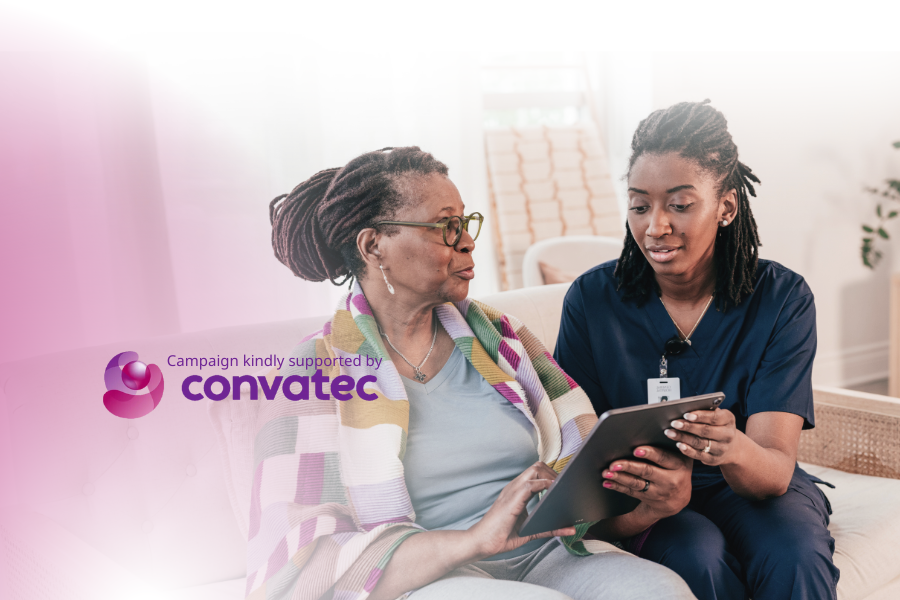Teenager information library
Here you can find advice about bladder and bowel issues in teenagers, and general bladder and bowel health. The information library is designed for you, for your family, as well as for the healthcare professionals who support you.
Bedwetting
Bedwetting is sometimes called nocturnal enuresis. It is a medical condition where urine (wee) leaks during sleep in anyone over five years old. It is normal for babies and very young children to wee during the night, but this stops for most children by the time they are five.
Many people do not understand that bedwetting can affect anyone of any age. It affects up to 3% of teenagers, as bedwetting does not always just go away as children get older.
Sometimes bedwetting starts again after being dry for a long time. This may be because of a new problem with the bladder, which can be caused by constipation. Sometimes it may be related to stress. New bedwetting should always be reported to a healthcare professional.
Bedwetting is not caused by you doing anything wrong. It is usually caused by the kidneys making too much wee at night, or by the bladder not being able to hold onto the wee as well as it should, or a combination of both of these. Either of these problems, together with your brain not being able to wake you up when the bladder signals it needs to empty, causes bedwetting.
There are treatments for bedwetting, although it can be challenging to know which treatment is most likely to work for someone. Therefore, you may need to try different treatments to find what works for you. Some teenagers need more than one treatment. Your healthcare professional should explain the different possible treatments to you and support you in deciding what you would like to try first.
Some teenagers may have tried treatment when they were younger, but found it did not work for them. The same treatments may work now. This is because as children grow up their bodies change and therefore how they respond to treatment may also change.
Daytime bladder problems
Some teenagers have difficulties with their bladder during the day.
The most common problems are getting a sudden urgent message to go to the toilet, having to go to the toilet more often than the usual four to seven times a day, or bladder leakage (wetting).
Other bladder symptoms include difficulties with emptying the bladder, leakage when you exercise, laugh, cough or sneeze and leakage after you have finished on the toilet. As with bedwetting problems, the way the bladder works is a medical issue and therefore, treatments are available.
Constipation is a common cause of some daytime bladder symptoms. This is because a full bowel puts pressure on the bladder and takes up space that the bladder needs.
Bowel & Constipation
Constipation is a medical condition where you are not able to fully empty your rectum (the bit of bowel nearest your bottom) when you do a poo. It is a common problem, but it is not always easy to diagnose in teenagers, because there may be different symptoms, and what is normal for one person may be different for another.
If you are doing a poo less than three times a week, more than three times a day, if the poos are small, hard or different textures when you go, if they are large enough to block the toilet or if the poo is leaking into your underwear you may be constipated.
Constipation can be treated. The usual treatment is with laxatives. Most people will be offered macrogol laxatives first. These are medicines that add water to the poo, making it softer and easier to pass. There is information about them below.
Sometimes stimulant laxatives are used as well as or instead of macrogol laxatives. The stimulant laxatives work on the muscles in the bowel wall, helping them to push the poo through the bowel more effectively. There is information about stimulant laxatives below.
Your healthcare professional or pharmacist (local chemist) can give you more information about laxatives and advise you about what and how much to take.
Constipation can also cause bladder problems. This is because the full rectum puts pressure on the bladder and takes up space that the bladder needs. These problems may include needing to go to the toilet to pass urine more often than usual, needing to get there quickly or experiencing bladder leakage (wetting) in the daytime or while you are asleep. There is more information about daytime bladder problems above.
Transition
If you have a bladder and/or bowel problem that might affect you when you are an adult, you will need to move over to adult services around the time you turn 18 years old. This change may feel difficult. However, the children’s service you are working with should help you to prepare, so that you feel ready when the time comes. They should also introduce you to the adult service that will be supporting your care.
The information in the leaflet ‘Starting to think about adult services and the process of transition’ below should help you to know what questions to ask, who to ask and what to expect.
Products and equipment
If your bladder is not able to keep you dry, because of a condition that you were born with, or because of an injury to the nerves or structures that control your bladder, then you may be given products (pads, which are also known as continence products).
The leaflet Getting the best from continence products explains how you should use the products. It is important that they are used correctly to make sure that your skin stays healthy and that they work well for you.
Teenagers who have periods and who are using continence products do not usually need to use extra pads during their period. There is more information about this in the leaflet Using continence products during your period.
If you have limited mobility (find walking difficult or use a wheelchair or other mobility aids), then you may find a urinal helpful. These are containers designed to hold urine and can be used if getting to a toilet or getting on and off a toilet is difficult. There are urinals that are designed for men and boys, and some that are designed for women and girls. Some can be used by anyone. Urinals on prescription is a leaflet with information about the urinals that your GP can prescribe.
Other information
If you have bladder or bowel problems and cannot find the information that you want here, you can contact our helpline for general information and advice.
You can also talk to a healthcare professional in your local area about your bladder or bowel health. If you attend school, you can speak to your school nurse – your school should be able to provide you with their contact details, and you do not need to explain why you are asking for them.
Any teenager can talk to their GP or practice nurse. If you are 16 or over, then you can see your GP or practice nurse without your parents. If you are aged 13 or over, you can register with a GP surgery yourself and they will see you on your own about some problems if they think that you are able to understand the treatment. However, they may ask you to bring a parent, other family member or a carer with you.
Latest news
Discover stories, advice and products in our articles.



